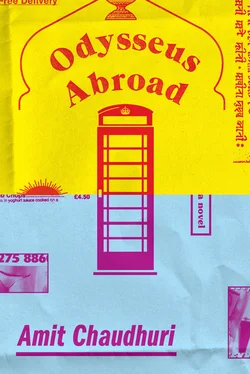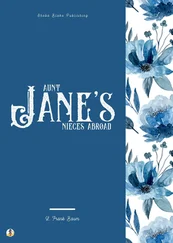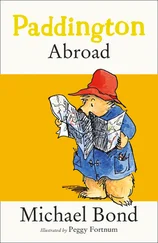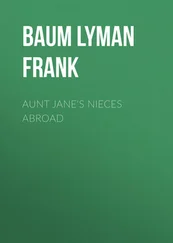If the place had at least rustled up a decent tandoori chicken, Ananda might have ordered a half chicken and naan sometimes as a takeaway and come back home with it in half a minute rather than rely repeatedly on Chinese mixed fried rice or go to Walia’s Diwan-i-Aam for an Indian takeout. He quite liked the scoured and singed flesh of tandoori chicken; his eyes feasted on the red lacquering. But the Tandoor Mahal bird was less than ordinary. He’d gone in there earlier this year with his uncle. By then, the oozing proprietor was somehow aware they were of Sylheti ancestry, and addressed his uncle in that tongue, “Aain, aain,” a dialect his uncle abhorred — almost embracing them in his eagerness. Then, in this familial vein, he’d given them, as fellow Sylhetis, reluctant though they were, a tour of the kitchen in the basement, where the cook’s helper, unmotivated and unhurried, was frying poppadum in a pan of frothy, orange oil. It was early evening, they were the only customers, and Ananda’s uncle and he were pampered like honoured guests. Sylhetis behaved thus — these people, who’d single-handedly re-created this menu, this cuisine, and invented these restaurants — they distributed nourishment to the English in general (tandoori tikka masala, tarka daal, vindaloo, poppadums), but to long-sundered kin from their own land (that is, to Hindus) they extended a hand of familiarity and kindness. In their own land, Ananda’s uncle and the proprietor Alam’s kind had been as strangers are; then they’d contested the referendum, and his uncle, his parents, and their ilk had found themselves outnumbered and had to depart their homes altogether. But here, in these restaurants, that bitterness was forgotten, and the Sylhetis unfailingly gave them — once they discovered his uncle hailed from Bejura in Habiganj district — a chicken jhalfrezi on the house, or unobtrusively omitted the gulab jamun from the bill. Often there’d be an extra mint chocolate on the platter. The old wars were set aside; there was only compassion, transmuted from memory. The Sylhetis were great samaritans — especially to a displaced member of the race who was now without a real home in London; or so Ananda felt, instinctively, in the interiors of these restaurants. Still, the slivers of onion, the popaddum and mango chutney, the chicken tikka that Mr. Alam had served them had — it was undeniable — a stale aftertaste; his uncle and he made the extra effort as they lied to Mr. Alam about the food, but that was their last visit.
—
He loved light — London had taught him this fact. University had taught him little in comparison; his main education in England was imparted by the day itself, his phases of awkwardness and happiness in its fourteen or fifteen hours, and, as a result, the realisation that he adored light —and sound. And by sound it was the street he meant, flowing inside in a shallow current through the crack beneath the raised windowpane. Not the muffled bassline that could be heard from upstairs at midnight, or the Patels’ abrupt forays into what must be the kitchen or the bathroom, or even Mandy playing the radio below: he didn’t like interiority, or neighbours, they were too close, like the thoughts in his head. Indeed, his uncle had said to him recently when he was complaining again about the Patels: “The noise is in your head. Stop thinking about it.” Yes, that was it: it was thought, self-consciousness, and concentration he hated, because they brought him back to himself, just as the sounds above did; it was his consciousness, himself, he was often keeping a reluctant vigil for. The silence in the studio flat when the window was down, the silence of the library or when he was at home reading, the lecturer’s voice in a hall, they all did the same thing too: emphasised the leaden permanence of that proximity — the proximity of this shadowy, indestructible thing, the self. He’d become fully aware of its constant nearness in England. He was married to his consciousness forever and ever. He wanted to escape, to slip away from the “I” surreptitiously, leaving it behind somewhere. And only the street with its sounds and manifold associations, filtering in through the raised window on a summer’s day — when but on a summer’s day could you raise a pane? — scattered and dispelled his vigil, distracting him.
The kitchen was finally his domain. He went to the bathroom fearlessly, because there was a door with a Yale lock partitioning upstairs from his level, separating the third and second floors, which had earlier, even four months ago, comprised a single flat. The kitchen had then been shared. Savita, who was studying fine art at St. Martin’s, and the stocky mathematician Vishal Arora, who went to the same college Ananda did, were in and out of the kitchen next to the room at all times. That was in his first year. And those were his first days in the flat. His mother was staying with him then. He didn’t know what he’d do without his mother. She’d habitually defended him, fought battles on his behalf. From being a strict and astringent parent when he was a child, she’d become a strange and close companion and guardian angel. The first skirmish arose from Vishal’s misuse of the kitchen. Vishal’s tall, stooping, sari-clad mother would visit him every other day and cook him peas masala and rice. Any peas that fell to the floor of the kitchen Vishal kicked with abstracted scrupulousness towards the landing, and eventually in the direction of Ananda’s room. Ananda and Uma (his mother was named after the goddess) had been puzzled to discover shrunken peas on the carpet. “Where did these come from?” he ruminated, inspecting one wonderingly. Then, another day, Vishal left the fridge door ajar and the freezer began to defrost and water trickled down and invaded the kitchen floor. This — later that afternoon — led to much argumentation and an unseemly exchange of accusations. A thought crystallised in Ananda’s head even in the midst of the unpleasantness: “So this is how it is for those who live in slums and chawls in Bombay — this is why you hear them shouting in the middle of the night — but worse, of course.” Ananda’s mother told Vishal he must wipe the floor clean. Vishal said, “I never did anything. Tell him to clean it up,” gesturing with his head to Ananda. The temerity! You could see the astonishment on his mother’s face. Her son, brought up to be a prince, with servants to keep him from lifting a finger or performing an unnecessary chore! Would he have to do Vishal’s bidding? Then his uncle turned up, full of a glowering resentment towards his mother (he could never quite forgive her for not being his chattel), and began playing the fool. “Do as he says,” he advised solemnly, while they stood undecided before Vishal and his mother, who was there too, supporting her son in her obdurate ghostly way. “Never go into a confrontation. Follow Gandhi. Turn the other cheek.” Ananda had believed his uncle would weigh in. His mother had told him that his uncle could argue brilliantly and persuasively when he chose. He was shocked by this little piece of theatre. He couldn’t fathom the man. Still, he must recoup, gather his wits. He’d turned his back on him — skulking nuisance and turncoat, skulking in his macintosh — and opted precisely for confrontation. He challenged Vishal to a fight. Once he’d issued the challenge, he was propelled forward by its ballast in that narrow landing. “Ananda, Ananda!” his mother cried in fear. His own belly was unsettled by apprehension. “You want a physical fight?” said Vishal with perplexity and relish. “Yeah, a physical fight — and let me warn you that I know karate.” That seemed to calm Vishal at once. He slowed down. “Hey, why do you want to fight?” he asked. That strategic play was the first small step towards establishing suzerainty over the kitchen. Vishal had moved to new accommodation in two weeks. After about nine months, Ananda’s father, visiting from Bombay, prevailed upon Walia to erect that door and cordon the kitchen off and to turn his son’s room into a small, self-contained studio. The rent leapt up at once. He was now the flat’s sovereign, but had no power over the noises his neighbours made.
Читать дальше











